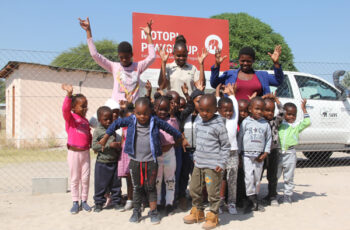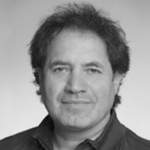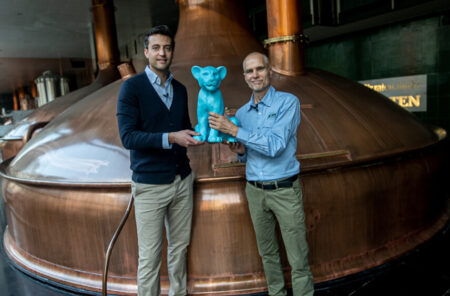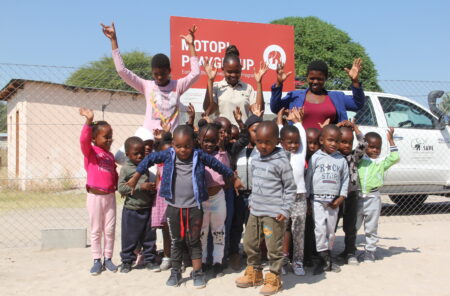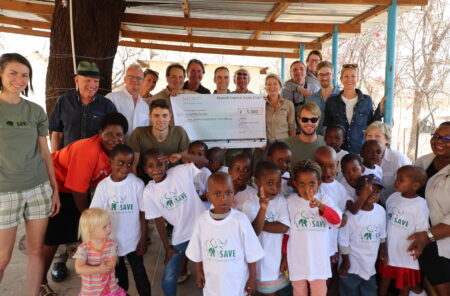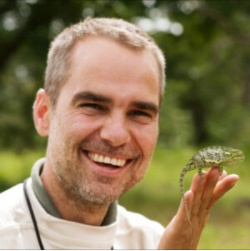SAVE is involved in disadvantaged regions such as Botswana or the Congo to enable people with poor schooling and a lack of vocational training to participate in economic life. The goal is to help people get on their own feet economically, for example by growing vegetables and fruit and setting up small businesses with handicraft products. SAVE places an emphasis on "Women Empowerment". Through its Education for Conservation program, SAVE has created numerous jobs for specially trained teachers to promote early environmental education and prevent human-wildlife conflict. Through education and research grants, SAVE supports young hopefuls who lack the capital to become rangers or wildlife researchers.
The food situation in Botswana is difficult due to the semi-arid conditions. The soils are dry and not very fertile, and there is a lack of knowledge about irrigation and shade systems as well as fruit and vegetable cultivation. As a result, most people eat mainly maize porridge and rarely meat. The pandemic has worsened the situation, as failing tourists have forced many poor people to poach, leading to hunger and hardship, especially among orphans. To help these people, SAVE has launched the Climate Smart Agriculture project. The goal is to provide sustainable food and sources of income for the residents. The project has already funded five individual projects with around 5,000 euros each, including a garden for orphans, a community garden for organic farming and a gardening project for women. Implementation is challenging, however, as it requires knowledge and resources to work the dry soil, build water pipes and containers, install protective nets from the sun and erect fences against wildlife. The project also aims to help reduce human-wildlife conflict and reduce dependence on livestock.
As part of the "Education for Conservation" program, teachers try to inspire children for species conservation and to give them long-term job prospects in safari tourism. However, they are confronted daily with the sad reality that many of the children do not have enough to eat and lack clothing and medical care. To combat this problem, most of the children receive a meal and learn practical skills such as proper tooth brushing. Teachers also provide clothing and medical care when needed. During the COVID 19 pandemic, hygiene measures such as hand washing and distance measures were added to the curriculum and 10,000 masks were obtained through a fundraising campaign. To provide adequate nutrients to people in the project areas, SAVE developed the Climate Smart Agriculture project, which provides fresh and nutritious fruits and vegetables. This will prevent deficiency diseases in the long term and promote healthier diets even among children. A garden in a shelter for vulnerable orphans is sponsored by SAVE so that they have homegrown fruits and vegetables on their plates every day.
SAVE focuses on environmental education and the use of natural resources in the project countries. Traditional schools in the countries hardly teach environmental education, even though lions, elephants and mountain gorillas are invaluable to ecosystems and sustainable tourism. SAVE introduces children to these resources through various educational programs, such as the Early Childhood development playgroups in Botswana and the Enviromental education Club for older school children. SAVE also invests in the education of dedicated young men and women, supports wildlife research projects, and has trained teachers:in environmental education and wildlife science. In Poland, SAVE is active with a focus on wolf research and offers workshops for students and interested parties. In Germany, SAVE offers a training program for teachers to increase the number of species conservation excursions in schools.
The Women Empowerment Project in Botswana advocates for gender justice and specifically targets women who have been particularly affected by the COVID-19 pandemic and the decline in tourism. Most of the 80 women, who come from three villages, are over 50 years old and have no secondary school education. The project enables them to earn a living through traditional wickerwork and small-scale farming. The women have received advanced training in basketry, poultry and vegetable production, as well as knowledge of cooperatives, accounting and marketing. The women's projects are making progress, such as fruit and vegetable cultivation and basketry production. SAVE's Women Empowerment project empowers disadvantaged women by combining their traditional skills with contemporary economic know-how, enabling them to sustain their livelihoods in the long term.
People in Botswana - as in many African countries - have no access to running, clean drinking water. Water is often pumped to the surface from deep rock strata and then stored in large reservoirs. Every village has such a reservoir. However, these water reservoirs are also the target of the elephants. The drier a region is and the fewer natural water points there are, the more likely it is that thirsty elephant herds will invade the villages and destroy the water tanks with their tusks in order to gain access to the wet water that is essential for survival.
Whether it is the buildings of the Enviromental Education Clubs, the pumps of the irrigation systems of the Climate Smart Agriculture project, the pump of the borehole at the Elephant Migration Route or the base of the Lion Rangers in the Lion Conservation project: all energy in all projects is generated by solar panels.
In each of the numerous SAVE projects, new jobs are created for the local population. As a rule, these are people in rural, remote areas who have no access to the economically powerful urban centers. The example of the community campsites illustrates well exactly how this works: in remote bush country, where people have very little chance of making a living, SAVE has opened three eco-community camps: These are ecologically run campsites for tourists in the middle of the bush, run and managed exclusively by local residents. Spending the night among wild animals is a dream for tourists, but for the local population it is above all a stable source of income. They offer excursions or safaris on foot, provide firewood, maintain the place. This is what SAVE understands by community development: sustainable community development through participation in the natural resources. It is through the camps that SAVE enables people from the surrounding villages to participate financially in wildlife tourism. Something that was always denied to them before. A part of the income from the camps flows directly into environmental education projects for children of the surrounding villages, so that the following generation will also have a real perspective for the future.
SAVE is not active in metropolitan areas, so its projects do not focus on the "industry" sector.
However, in rural areas, i.e. in regions where people tend to have poor or no access to job and educational opportunities, SAVE focuses more on innovation and infrastructure. Innovative projects enable people to participate in activities that they did not have access to before. Participation in education and training, especially in the environmental sector. This massively improves their job opportunities in regions that live from safari tourism.
Climate Smart Agriculture projects teach innovative cultivation techniques that make it possible to grow fruit and vegetables successfully even in arid semi-desert regions.
SAVE projects create new jobs for the local population, especially in rural areas without access to economically strong cities. One example is the eco-community camps that SAVE has opened in remote bushveld. These campsites are run by local residents and offer tourists the opportunity to spend the night among wildlife. For local people, the camps are a stable source of income as they offer excursions, safaris and other services. SAVE enables people from surrounding villages to participate financially in wildlife tourism through the camps. Part of the income also goes to environmental education projects for children from the surrounding villages.
A similar principle is applied in the Women Empowerment projects. People in regions with limited earning opportunities, especially women over 50 in rural areas, are given the chance to set up a small business. SAVE supports them in this, for example in chicken farming, fruit and vegetable cultivation or basket weaving. In addition, SAVE teaches them basic accounting and marketing skills to ensure the success of their businesses.
The Climate Smart Agriculture projects aim to help village communities establish small farms. Given the challenge of feeding a growing population, the focus is on climate-smart plant-based food production. This not only helps to solve the food problem, but also enables the small farms to sell their surpluses at local markets and lodges, thus securing a reliable income in the long term.
In the rural regions of Botswana, educational opportunities are few and far between. Secondary schools are only available in larger cities. As a result, the rural population has little chance of finding a secure job that will provide a long-term livelihood for entire families.
For this reason, all SAVE projects are aimed specifically at the rural poor. The aim is to provide them with a solid livelihood. A great opportunity lies in eco- and safari tourism - next to diamonds the strongest economic sector in Botswana. But especially the poor rural population has no access at all to this job market: because they lack the knowledge, the education and often simply the money to finance special trainings.
SAVE wants to eliminate this disadvantage by supporting projects that a) benefit the poor rural population b) support especially disadvantaged children and their families and c) familiarize the people with something to which they had no direct access until now: the wildlife wealth of their country and sustainable safari tourism.
Thus, the umbrella under which the now 36 environmental education projects take place is called "Education for Conservation". Specifically addressed to people for whom wildlife traditionally represented an existential threat and to whom SAVE would like to provide access to this market.
The three community campsites project is also about reducing inequality of opportunity: Only people from the surrounding villages work in the ecologically oriented bush camps. All income goes 100% to the village communities.
Since experience has shown that well-run camps in the middle of the wilderness attract national and international investors, SAVE has excluded the participation of commercial third parties.
In the Women Empowerment Project, inequality between women and men is reduced. Smallholder agriculture has traditionally been a male domain in Botswana, but businesses are also predominantly run by men. Thus, as part of Women Empowerment, SAVE specifically encourages women, many of whom are over 50, to build small businesses.
SAVE would rather rebrand this as "sustainable model regions." In this case, the model regions are the villages around the UNESCO World Heritage Site Okavango Delta. Specifically, these are villages where there are numerous human-wildlife conflicts. So-called Wildlife-Conflict-Areas. There, people lose their livestock to wild animals, and vice versa, wild animals have to lose their lives because they kill the livestock. On the one hand, this is tragic for the people; on the other, it gradually destroys a highly valuable resource: Botswana's fascinating wildlife, which attracts wealthy tourists from all over the world.
Therefore, the sustainable approach in all SAVE projects is: a peaceful coexistence of people and wildlife. This also means that people are offered alternatives to cattle breeding and are trained in dealing with wildlife. This is the approach SAVE takes around the national parks, and the goal in the long term is to involve people in 90% of all Wildlife Conflict Areas in the various programs for all ages: starting with the Early Childhood Development program for children as young as three years old, through the Enviromental Education Club for youth up to 18, to the various education and job programs for adults.
By concentrating on closely spaced villages in entire regions, SAVE projects also change entire regions in the long term. The lively exchange between the projects is thus made possible, which opens up synergy effects.
The ecological footprint in developing and emerging countries is naturally much smaller than in industrialized nations. Most people could never afford a car, and the availability of goods - from clothing to food - is much lower, so people consume more mindfully. For example, discarded food simply doesn't exist there.
Nevertheless, SAVE pays attention to sustainable consumption in all its projects. In the Women Empowerment project, for example, only local natural fibers are used in basket weaving. At the same time, traditional handicrafts are promoted.
The eco-campsites work according to sustainable criteria, and in the children's projects, too, emphasis is placed on circular economy: For example, there are creativity days where the children collect old car tires from the surrounding area and build them into playground equipment. Waste collection days" are also organized on a regular basis.
In the Climate Smart Agriculture project, the resource-conserving and climate-friendly cultivation of plant-based food is promoted in order to offer an alternative to meat consumption. Special cultivation techniques are used to address climatic conditions, protect plants from the sun and use water sustainably.
The Climate Smart Agriculture project is a climate protection project. Here, a way was found to solve the food problem with a climate smart approach - as propagated by the UN Food and Agriculture Organization (FAO) . At its core, this involves increasing agricultural productivity, reducing emissions of climate-damaging greenhouse gases and simultaneously increasing adaptation to the growing unpredictability of weather events.
The five CSA projects now underway in Botswana are doing all of this. At the same time, they provide healthy food for the population and a secure income.
By cultivating plant-based foods as an alternative to livestock farming, emissions of climate-damaging gases from livestock farming are reduced.
In the past, SAVE had already prevented the deforestation of 70,000 hectares of rainforest in Cameroon, thus also preserving its function as a CO2 reservoir. If, as planned, a palm oil plantation had been built there after deforestation, this would have been lost forever.
The conservation of terrestrial ecosystems is one of SAVE's most important goals. Ecosystems not only serve as habitats for animals and plants, they also provide an indispensable livelihood for people.
In addition to preserving 70,000 hectares of rainforest in Cameroon, SAVE is committed to preserving the environment in all of its projects without exception - always in conjunction with better living conditions for people.
In the large-scale project SAVE Lions - Living with Lions - the focus is on preserving the highly endangered species. In Poland, SAVE runs a wolf research project for the protection of wolves. With the revival of water points along a migration corridor for elephants, the animals were saved from dying of thirst.
There were other SAVE conservation efforts to save hippos and wild dogs. All SAVE environmental education programs aim to sensitize local people to the value and richness of native wildlife. Even children, it is hoped, will be won over as tomorrow's conservationists.
The most important partners of all SAVE projects are basically the local communities. This means: SAVE always works together with the local people and does not decide over them at any point. Only with this full agreement and commitment of the village communities and their representatives the projects become successful.
